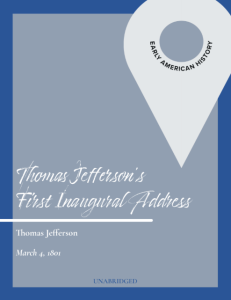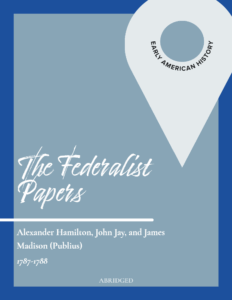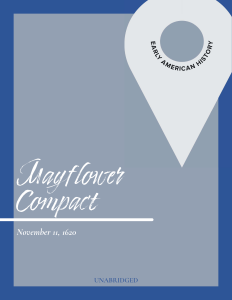
Responsibility, in order to be reasonable, must be limited to objects within the power of the responsible party.


Capital determines whether a society will be prosperous or poor, well-fed or not, populated by independent and self-reliant citizens or dependent subjects. An abundance of nutritious food, clean water, sturdy homes, safe modes of transportation, reliable sources of heat and power, modern medicines, and many other products and technologies that improve the quality of human life are impossible without capital.
A teacher can help students understand what capital is by encouraging them to think of capital as an individual’s “starter pack” for being productive and getting things done. Capital includes the tools, money, and other valuable resources a person needs to create something of value, or to solve a problem in order to create wealth.
For example, if you wanted to start a lemonade stand, the money you use to buy cups, lemons, water, and a sweetener is capital. While money is an important form of capital, capital can include other resources that help you create wealth for yourself by producing value for others.
Other Kinds of Capital:
Capital is anything you can use to “build” something that will provide experiences of value for other people. Money is the most obvious example of capital, but creativity, friendships, and even your honesty and intelligence, can be just as important, maybe even more important in some circumstances.
So, yes! Capital is cash and more: Capital includes any resource that helps you be more productive. Ask students: What kinds of capital do they have? Maybe it is their energy, ideas, or even their ability to make people laugh. Remind them that everyone—even people with little or no money—have important capital over which each person has much control: A person’s own reputation, honesty, and trustworthiness.
Evaluating incentives
One of the most important questions within any society is: Who will allocate capital? One possibility is that individuals choose whether, how, when, where, and why to spend their own money and invest their own capital. Another option is that political elites within government will tax citizens and confiscate the wealth that others have created, and then those in government will choose how to allocate other people’s their capital.
Individuals choosing how to invest their own capital have strikingly different incentives than politicians and bureaucrats in government spending other people’s money.
As we discuss in another section, profit is the happiness of other people. When individuals and business owners make their own choices about how to allocate and when to invest their own capital, they aim to earn a profit—they want a return on their investment—which is another way of saying they’re trying to make other people happy by producing value for them.
When those in government choose how to spend other people’s money, they serve their own interests, usually by expanding the scope and power of government. That is worth repeating: Business owners allocate their own capital in order to make a profit for themselves by making other people happy; government allocates other people’s capital in order to extend the power and control of government.
Every new government spending program, after all, requires expanding the class of unelected bureaucrats, adding new levels of control over what citizens may do, and adding new kinds of taxpayer-funded government competition to businesses and other private organizations.
Incentives of Allocation
For politicians and bureaucrats, resource allocation often means achieving political ends or aiming for short-term gains. Without direct knowledge of costs or profits, these decisions can be quite unpredictable.
When private individuals choose how to invest or spend their own money, they have strong incentives to make careful, strategic decisions. If they invest wisely, they personally reap the rewards; if they invest foolishly, they suffer the losses. This direct link between decisions and consequences encourages efficiency and accountability. Individuals are motivated to seek the highest return (or best use) for their funds, and they also bear the risk of losing their capital if a project fails.
By contrast, when those in government take capital from citizens through taxation, politicians and bureaucrats end up allocating resources that are not their own. As a result, several distortions can arise:
In short, when individuals allocate their own funds, they have personal incentives—financial risk and reward—to be careful stewards of their capital. When governments collect taxes and decide how to spend them, officials are allocating other people’s funds and often do so under weak or no incentives for efficiency, with less direct accountability for mistakes, and with political or bureaucratic considerations that can overshadow the goal of maximizing societal well-being.
 Nº1
Nº1
Description
Download PDF Download ePub Button 3
Much of the political vocabulary of the American Founding was borrowed from the English political and philosophical tradition (e.g., “liberty,” “rights,” “property”) and classical Roman and Greek thought. But the word responsibility emerged as a distinctively American innovation in both meaning and usage.
In 18th-century Britain, political writers such as Edmund Burke and William Blackstone typically used terms like:
– Accountability meaning external, legal answerability, especially of ministers to Parliament.
– Liability describing someone being subject to legal or financial penalties.
– The word responsibility existed, but usually meant narrow legal or administrative liability (e.g., a sheriff being responsible for his deputies’ actions).
In the American Founding, responsibility was expanded beyond narrow liability into a constitutional design principle.
Within the context of early American political thought, responsibility combined responsiveness—in the sense that a “responsible” government responds to the opinions and wants of the people; while an “irresponsible” government simply ignores what the people want—with moral responsibility, or doing what is right, wise, or just.
In The Federalist Papers, for example, responsibility became associated with:
– Clear lines of authority, blame, and credit (e.g., a unitary executive who can be held responsible by voters).
– Moral-political accountability, not mere legal liability. An elected official, for example, should be held responsible for launching an unjust war of conquest.
– Responsibility in this context meant that officeholders should personally own their actions and decisions, and voters should know who to praise or blame for various government successes or failures.
In Federalist #63, Madison writes: “Responsibility, in order to be reasonable, must be limited to objects within the power of the responsible party.” No one, for example, should hold a local mayor responsible for foolish laws enacted by the federal government because the mayor has no power to enact federal laws.
In Federalist #76, Hamilton writes: “The sole and undivided responsibility of one man will naturally beget a livelier sense of duty and a more exact regard to reputation.” When judging the actions of a multi-person committee, for example, it is difficult to know who exactly to hold responsible for what the committee does (or fails to do).
But when one person is vested with significant power—such as the executive power vested in the President of the United States—that individual is less likely to ignore his duty, and he is more likely to pay attention to his reputation among others, because he knows that he alone is responsible for the choices he makes.
Early Americans used responsibility to connect power, answerability, accountability, and moral judgment in a republic.
It represented a shift from merely being held to account by courts or Parliament to being accountable to the people themselves, reflecting a republican, self-governing ethos.
In short, while the word responsibility existed before the American Founding, early Americans elevated, popularized, and deepened the meaning of the term as a core republican civic virtue and structural principle of governance—making it inseparable from concepts of popular sovereignty and republican self-government.


